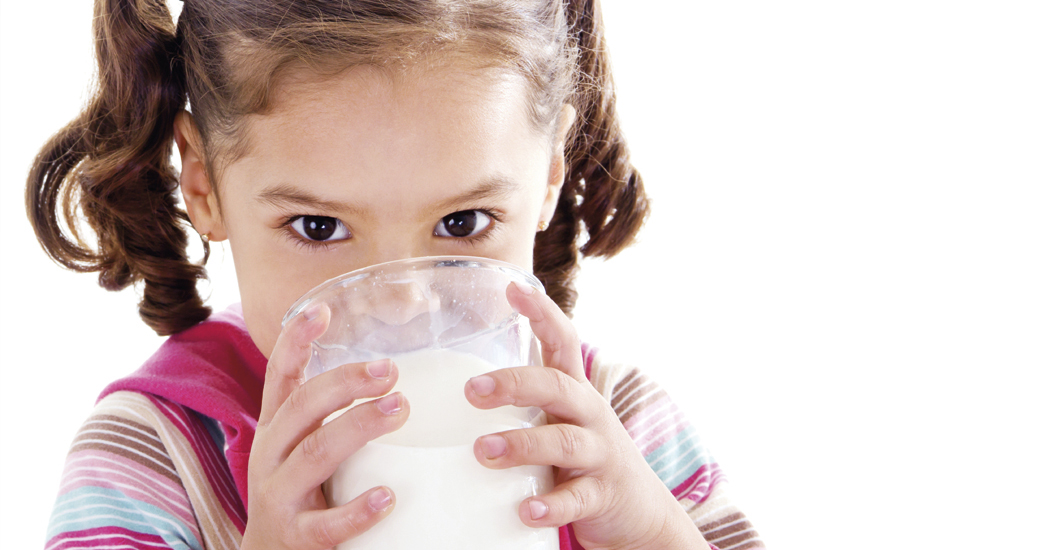Why is milk good for your health?
Nutrition & fitness /

On supermarket shelves, there is an increasing variety of milk. Let’s take a look at the most popular ones.
According to nutritionist Claudia Leonor Márquez, milk is the most complete food, since it is the perfect balance of protein, carbohydrates, fats, water, vitamins, and minerals. Moreover, milk is an important source of calcium, which is vital for bone and tooth formation. This is important not only to us as infants, but at any age, since the skeleton is constantly developing. So don't forget to always pick up milk at the store.
1. Whole milk
Whole milk is rich in calcium, potassium, phosphorous, magnesium, zinc, and iodine, as well as vitamins A, D, and B-complex vitamins, in particular B2 or riboflavin. A daily glass of milk provides a child with almost half of their daily requirement of protein, and exceeds their requirements for calcium and vitamins D and B2. For adults, one glass provides 30% of the daily needs of those same nutrients. This type of milk, as well as others that are pasteurized should not be boiled in order to preserve all of these nutrients and vitamins.
1 glass (250 mL) of whole milk contains:
- Calories: 100
- Protein: 6.8 grams
- Fat: 5 grams
- Carbohydrates: 7.8 grams
2. Semi-skimmed milk
The only difference between semi-skimmed milk and whole milk is that it contains half the amount of fat—after the pasteurization process, the milk is placed into a centrifuge to separate out the fat. The semi-skimmed milk moves toward the center of the machine and then flows through tubes to be collected. More than 90% of the other nutrients are kept. Semi-skimmed milk has up to 1.5% fat content and fewer calories, while whole milk has 3.2% fat content.
1 glass (250 mL) of semi-skimmed milk contains:
- Calories: 90
- Protein: 6.4 grams
- Fat: 3.2 grams
- Carbohydrates: 9 grams
3. Skim milk
In order for milk to be considered skim milk, it has to have less than 1% fat content. As a result, this milk is an option for those people who ought to reduce their intake of saturated fats in order to lose weight or as the result of problems with cholesterol levels or triglycerides. This is particularly true since skim milk continues to provide a considerable amount of protein, calcium, phosphorous, magnesium, zinc, and B-complex vitamins, without adding any additional saturated fat to their diet. However, during the separation process, more than half the amount of vitamins A and D is lost.
1 glass (250 mL) of skim milk contains:
- Calories: 66
- Protein: 6.6 grams
- Fat: 0.4 grams
- Carbohydrates: 9 grams
4. Lactose-free milk
People who are lactose intolerant can have this type of milk that has an enzyme (lactase) added to it, which converts lactose into faster-metabolizing sugars, namely glucose and galactose. Still nutritious, lactose-free milk has the advantage that it is easily digested and does not cause the symptoms that whole milk does in lactose intolerant people.
1 glass (250 mL) of lactose-free milk contains:
- Calories: 100
- Protein: 7 grams
- Fat: 3.5 grams
- Carbohydrates: 10 grams
5. Soy milk
The proteins in soy milk and cow milk are different: one is derived from plants while the other from an animal. Soy milk has less essential amino acids and less calcium. The main advantage of soy milk is that it provides polyunsaturated fatty acids, which are good for your health, and has less saturated fat. Since it does not have lactose, individuals who are lactose intolerant can enjoy this milk risk-free.
1 glass of sugar free soy milk contains:
- Calories: 67
- Protein: 5 grams
- Fat: 3.4 grams
- Carbohydrates: 3 grams
Sweetened:
- Calories: 100
- Protein: 5 grams
- Fat: 3.4 grams
- Carbohydrates: 11 grams
6. Almond milk
Almond milk has more vitamin E and half the amount of polyunsaturated fat as soy milk, which is why it has 40 fewer calories in each glass. For this reason, it is recommended in low-calorie diets. Moreover, almond milk provides more calcium, protein, zinc, iron, magnesium, and potassium, as well as vitamins A and D. It also is a good source of soluble and insoluble fiber, which promotes digestion.
1 glass of sugar free almond milk contains:
- Calories: 60
- Protein: 1 gram
- Fat: 2.5 grams
- Carbohydrates: 8 grams
Sweetened:
- Calories: 70
- Protein: 1 gram
- Fat: 2.5 grams
- Carbohydrates: 16 grams


